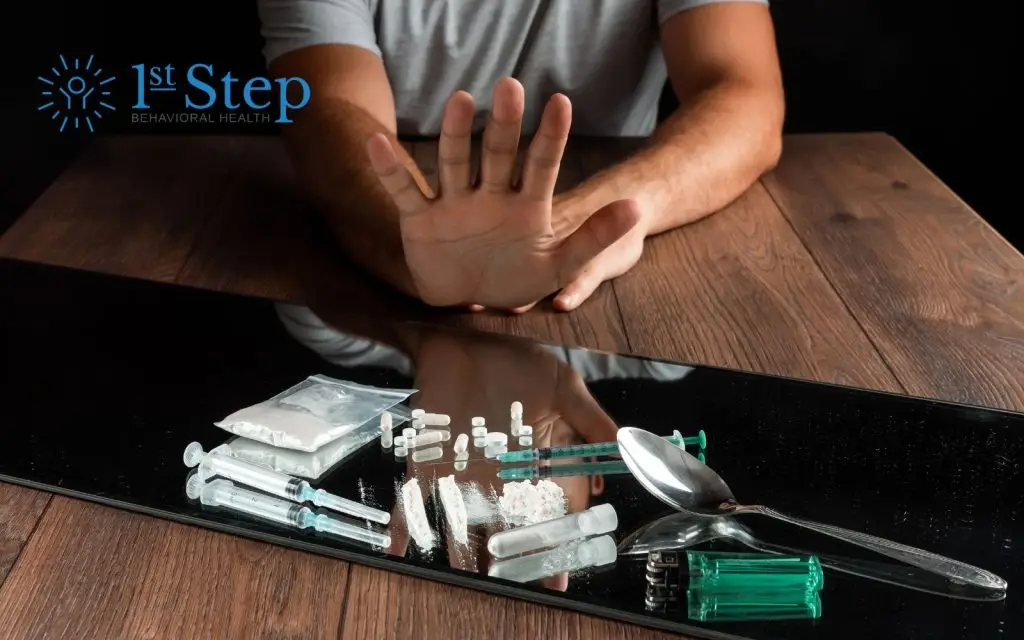Addiction is a complex condition that can cause physical and mental impairment. Drug addiction can impact every aspect of a person’s life. It can negatively affect people’s mental and physical health, limit their opportunities, harm relationships, and more.
Some people wonder if addiction is defined as a disability under the ADA. Some may wonder if employment is protected under the ADA if people need to seek addiction treatment. It can be challenging to determine if the illegal use of drugs qualifies someone for ADA protections.
This article will explore the answer to that question and more. You will learn:
- If substance use disorder (SUD) is covered under the ADA
- How the ADA and other laws protect the employment of people with SUD
- What to expect during addiction treatment
- Where to find comprehensive addiction treatment
If you or someone you love struggles with substance abuse or addiction, you are not alone. Compassionate, effective treatment is available at First Step Behavioral Health. Contact our intake team to learn about our programs or to schedule an intake assessment.
Is Addiction a Disability?
About 61 million adults in the United States live with a disability. Individuals with disabilities may require resources and support to help them function in daily life. They may need accommodations and other benefits to live the most fulfilling lives possible.
The Americans with Disabilities Act (ACA) is a law that prohibits discrimination against people with disabilities. The ADA recognizes a person with disabilities if they have:
- A physical or mental impairment that substantially limits their brain functioning. It can affect a person’s ability to care for themselves, sleep, learn, think, and more.
- A history of impairment that limits one or more major life activities.
- Has been labeled as having a disability or impairment and is treated negatively because of this assumption.
Under the ADA, substance use disorder (SUD) is considered a disability. However, it is essential to note that people with SUD must receive consideration on a case-by-case basis. To receive disability benefits for substance abuse under the ADA, a person must:
- Establish they have a disability
- Receive a medical diagnosis of substance use disorder (SUD)
- Determine whether impairment would continue after they are no longer using drugs illegally
- If a doctor determines substance abuse causes or worsens an existing disability, people may lose their disability benefits if they use drugs.
The ADA currently provides benefits and protections only for those in recovery. In some cases, they may need to prove they are not actively engaging in illegal drug use. People who use illegal drugs while receiving benefits may be found to have violated the ADA and lose benefits.
Can I Keep My Job While Going to Rehab?
Surveys show that about 70% of people living with addiction are employed. People with SUD may wonder if it is possible to keep their job while seeking addiction treatment.
The ADA offers protection for people with SUD regarding their employment. This law prohibits employers from discriminating against or firing employees with substance use disorder (SUD). The ADA requires employers to allow you to adjust your work schedule as needed. You may be able to alter work hours to accommodate drug testing, medical appointments, and other recovery-related activities.
People who believe they have experienced discrimination at work may file a complaint with the Equal Employment Opportunity Commission. People may also explore their rights from state and local governments.
People with SUD may also be eligible for a leave of absence for rehab under the Family Medical Leave Act (FMLA). Understanding the laws protecting your employment during rehab may help you feel more confident requesting a leave of absence.
What to Expect During Addiction Treatment
Addiction treatment can help people regain control over their futures. Here is an overview of what to expect in treatment.
Detox
A detox treatment plan consists of treatment to help people manage withdrawal symptoms and stay safe throughout detox.
Detox treatment might include:
- 24/7 supervision and access to treatment
- Medications to manage withdrawal symptoms
- Mental health treatment
- Emotional support, including individual therapy and support groups
- Holistic therapies like yoga, nutrition support, and mindfulness
Round-the-clock supervision and treatment will ensure people remain safe and on track throughout detox.
Treatment
After completing detox, people must continue treatment. People with substance use disorder (SUD) may continue treatment in a residential program if needed. Or, they may transition to an outpatient rehab program.
Your treatment program may include:
- Mental health treatment
- Medications and medical care
- Cognitive behavioral therapies (CBT), contingency management, or other behavioral therapies
- Individual, group, and family therapy
- Relapse prevention education and coping skills
- Holistic therapies like exercise, nutrition counseling, mindfulness, and more
- Aftercare planning
Depending on their needs, people may spend just a few days in treatment or several months. Many people complete an inpatient rehab program before transitioning into an outpatient treatment program.
After completing treatment, developing and following an aftercare plan is critical. This plan might include medical, mental health, and other forms of addiction treatment, as well as support groups, holistic therapies, and other recovery-related activities.
Find Addiction Treatment Now
If you or someone you love struggles with substance abuse or addiction, you are not alone. Contact the intake specialists at First Step Behavioral Health to learn about our programs or to schedule an intake appointment.
- U.S. Department of Justice Civil Rights Division: Law, Regulations & Standards
- U.S. Commission on Civil Rights: Substance Abuse under the ADA
Jump to a Section
Call (855) 425-4846
